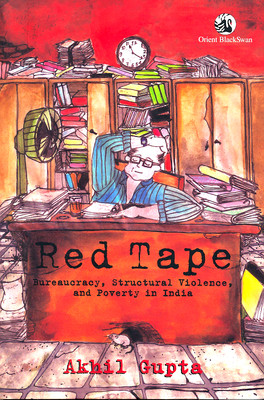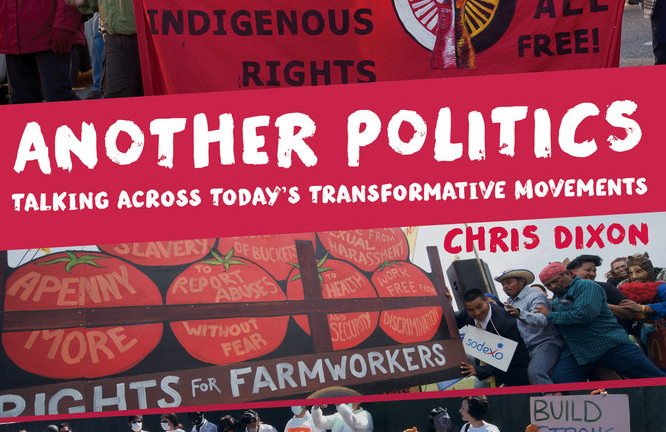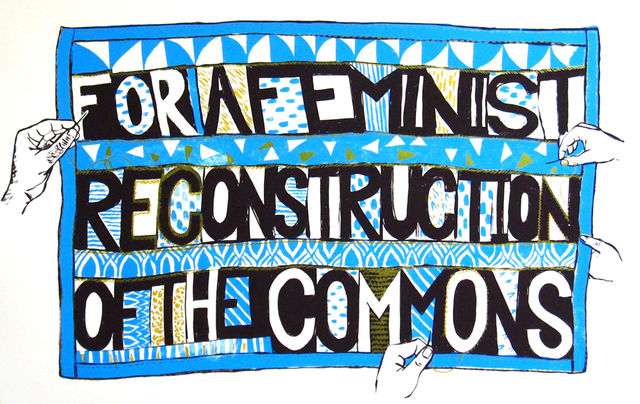
There is a clear case to be made for the connection between ecology and anarchism.1 Many philosophers, academics, and radicals have elaborated this over the past two centuries2. But reviewing the history of this theoretical relationship is not the goal here. The movement surrounding anarchism in the past 200 years has certainly included its fair share of theory, yet what has rooted anarchist ideas so deeply in human society is the prioritization of action. It is this action-based relationship between the ecological movement and anarchism that we explore.
How has anarchism inspired and shaped ecological action in recent history, and how might it continue to? The experience of Earth First! over three-and-a-half decades embodies the most critical aspects of this question.
While Earth First! (EF!) has never considered itself to be explicitly anarchist, it has always had a connection to the antiauthoritarian counterculture and has operated in an anarchistic fashion since its inception3. In doing so, it has arguably maintained one of the most consistent and long-running networks for activists and revolutionaries of an anarchist persuasion with the broader goal of overturning all socially constructed hierarchies.
2015 Fundraising Campaign Success!
We’re proud to announce that we’ve exceeded our goal of raising $6,000 by almost $1,000. This puts us in a good position to print the new issue of Perspectives on Anarchist Theory, continue to work toward restoring our non-profit status, and award writing grants after … Read more
Institute for Anarchist Studies Winter 2015 Newsletter
 New IAS Grants The IAS is proud to congratulate our latest round of grantees.
New IAS Grants The IAS is proud to congratulate our latest round of grantees.
Laura Hall Laura Hall’s background is Mohawk and English-Canadian. Her work explores decolonizing and Indigenist approaches to environmentally sustainable community planning, while gendering the work in order to focus on the issues of Indigenous women as well as two-spirited peoples. She is a PhD candidate in Environmental Studies at York University.
Her project is called “Eco-Queer Indigenous Feminism” I name my approach according to my own experiential, embodied and intersectional lived experience, but also as a way of representing the depth of Indigenist and decolonizing theory. In grounded, embodied, intersectional movements and story, Indigenous Eco-Queer feminist analysis is forming against a number of pressing issues— opposing oil and natural gas development for example and also ongoing housing/poverty needs, the likes of which are being addressed in our Indigenous communities in creatively culturally rooted ways. I would like to draw connections between our movements and anarchist-socialist discourses, while also lending a (Haudenosaunee) Indigenist analysis of the state’s relationship to hegemonic theory and treaty understandings (at two extremes) in order to better understand ways that we might unthink the state, rethink the state, or dream new/old governance in the spirit of treaty based responsibility (as both Indigenous and ally/accomplice groups).
E Ornelas E Ornelas is a queer and genderqueer identified anarcha-feminist of mixed ethnic background who is an English-as-first-language, US citizen living in a colonized land. E’s research interests include the intersections of anarchist and feminist theory, particularly in educational contexts. When E is not facilitating both formal and informal discussions on these topics, E enjoys biking and baking.
E’s project is called “Purple & Black: An Anthology of Anarcha-Feminist Theory & Action” This is meant to provide a review and synthesis of anarcha-feminism while moving conversations about anarcha-feminism beyond past authors’ attempts at defining and defending it within anarchism, to a compiled recognition and celebration of its achievements and contributions. My approach is to examine and annotate pertinent anarcha-feminist cultural artifacts, whether textual, artistic, oratory, etc. Though I am influenced by previous anarcha-feminist publications, I also wish to expand their reach beyond a predominantly white, western, and/or predominantly English-speaking sampling of theory and action.
Jack McGinn Jack McGinn has long been involved in activism and international solidarity related to the Palestinian cause, having worked with Students for Justice in Palestine for six years, translating and distributing dispatches from activists based in Palestine, and writing for an online audience on related matters. He lives in Northern Ireland.
His project is called “Anarchist Trends in the Organizational Methods Underpinning the First Palestinian Intifada” Palestine remains a well-examined and critical point of focus for the international anti-hierarchical Left, situated as it is at the intersection of imperialist, capitalist, and neocolonical power. However, research into how specifically anti-hierarchical thought and practices play a role in the (multi-faceted) Palestinian resistance is lacking and in many cases is nonexistent. A pertinent example is the first intifada; a remarkable example of a decentralized and subaltern-led campaign of sustained resistance. Work has been done on the Israeli Anarchists Against the Wall, and a sparse amount of research on the dynamics of queer resistance against patriarchy and occupation exists, but there is as yet no study (in Arabic or English) like that of Sam Dolgoff’s edited collection of essays on the anarchist collectives in revolutionary Spain, for example. This piece looks to fill that void.
Gathering Autonomy: Justseeds Artists’ Cooperative. March 5th – June 21st, in Portland, OR
For its inaugural exhibition at the new 511 Gallery at the new campus flagship, the Arlene and Harold Schnitzer Center for Art and Design, PNCA is pleased to present Gathering Autonomy: Justseeds Artists’ Cooperative, the first retrospective exhibition of this print cooperative that produces graphics for activist organizations around events or actions, located at 511 NW Broadway, Portland, OR, 97209
Anarchism, Decolonization, and Radical Democracy || Symposium: Haverford College, Haverford, PA, March 27th
Organized by Andrew Cornell, Mellon Postdoctoral Fellow and Visiting Assistant Professor of American Studies at Haverford College and Institute for Anarchist Studies author. Anarchism has inspired global social movements for more than two decades, yet remains peripheral to academic debate. Scholars have developed sophisticated conceptions … Read more
Marina Sitrin, author of Horizontalism, on the Significance of IAS Support for Writing
Marina Sitrin, author of Horizontalism: Voices of Popular Power in Argentina (AK Press: 2006) is a past recipient of an Institute for Anarchist Studies (IAS) writing grant. She has this to say about the financial and political support she received from the IAS: “The funding I … Read more
The Violence of Bureaucracy: A Review of Red Tape: Bureaucracy, Structural Violence, and Poverty in India by Akhil Gupta (Durham and London, Duke University Press, 2012) by Dalel Benbabaali
According to anthropologist Akhil Gupta, the structural violence of the state in India kills two to three million people every year, mostly lower caste or tribal women and children. Yet, numerous anti-poverty programs target a population that actively participates in the democratic project through the electoral process. Gupta tries to explain this paradox in his new book, based on a detailed ethnography of the Indian bureaucracy.

“To be governed is to be at every operation, at every transaction, noted, registered, enrolled, taxed, stamped, measured, numbered, assessed, licensed, authorised, admonished, forbidden, reformed, corrected, punished.”[1] Without directly referring to this quote from French anarchist Proudhon, Gupta provides a similar description of the Indian government that perceives poor women and children as “segments of the population that had not been as extensively surveyed, counted, classified, measured, injected, or schooled in the past” (261).
In fact, his references are less Proudhonian than Foucauldian. Basing his argument on the concept of biopower as it was elaborated by Michel Foucault, Gupta suggests that poverty in India has been normalized through numerous statistical projects aimed at measuring it. As a consequence of this normalization, the killing of the poor is neither considered a violation (of law, justice, morality or the Constitution), nor a scandal that delegitimizes power.
Send Us Stuff! New IAS Mailing Address
Want to donate to support struggling radical writers and independent publishing by check? You can put a check in the mail to support the work of the Institute for Anarchist Studies. Also, send us your magazines, journals, ‘zines, books to be reviewed either on this … Read more
In a rare Pacific Northwest appearance: Roxanne Dunbar-Ortiz, speaking on her new book, "An Indigenous Peoples' History of the United States"
In An Indigenous Peoples’ History of the United States, Roxanne Dunbar-Ortiz challenges the founding myth of the United States and shows how policy against the indigenous people was genocidal and imperialist—designed to crush the original inhabitants. Spanning more than three hundred years, this bottom-up history significantly re-frames how we view our past. Told from the viewpoint of the indigenous, it reveals how Native Americans, for centuries, actively resisted expansion of the US Empire.
Support the IAS!
The Institute for Anarchist Studies (IAS) will be awarding thousands of dollars to struggling writers in the form of grants late in February. The people receiving these grants, writing on antiauthoritarian themes, are folks with no institutional support. The funds we provide will aid them … Read more




